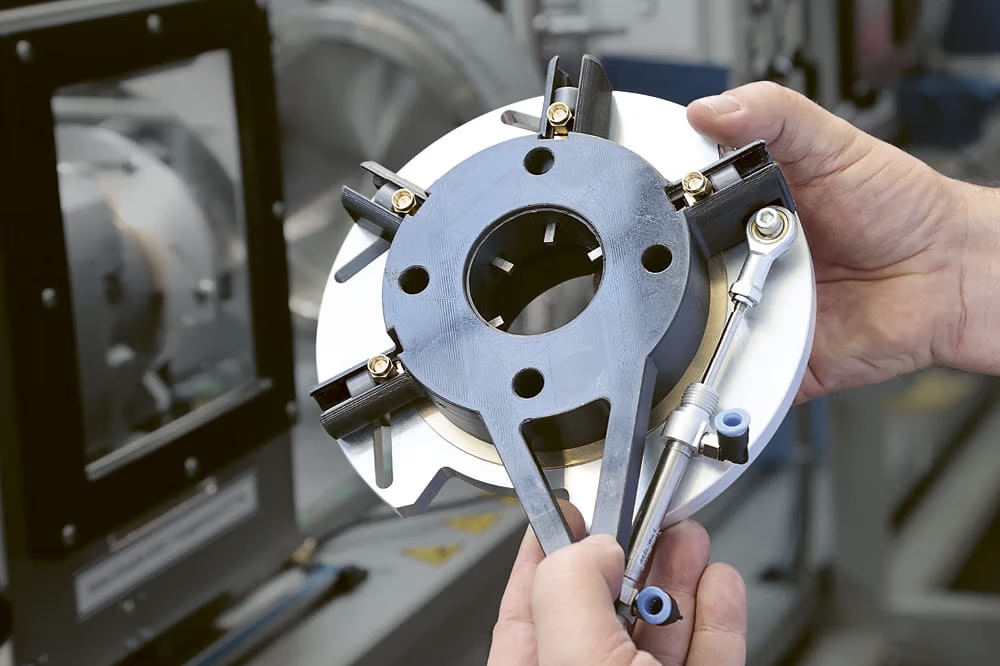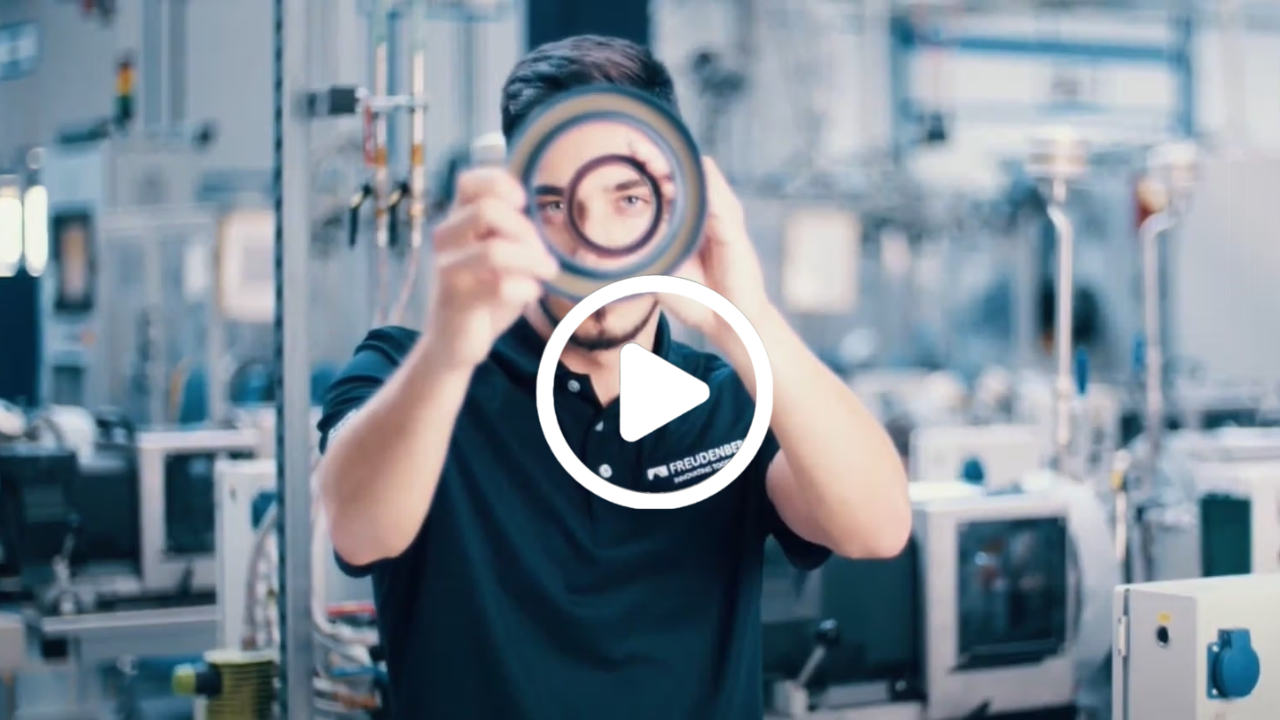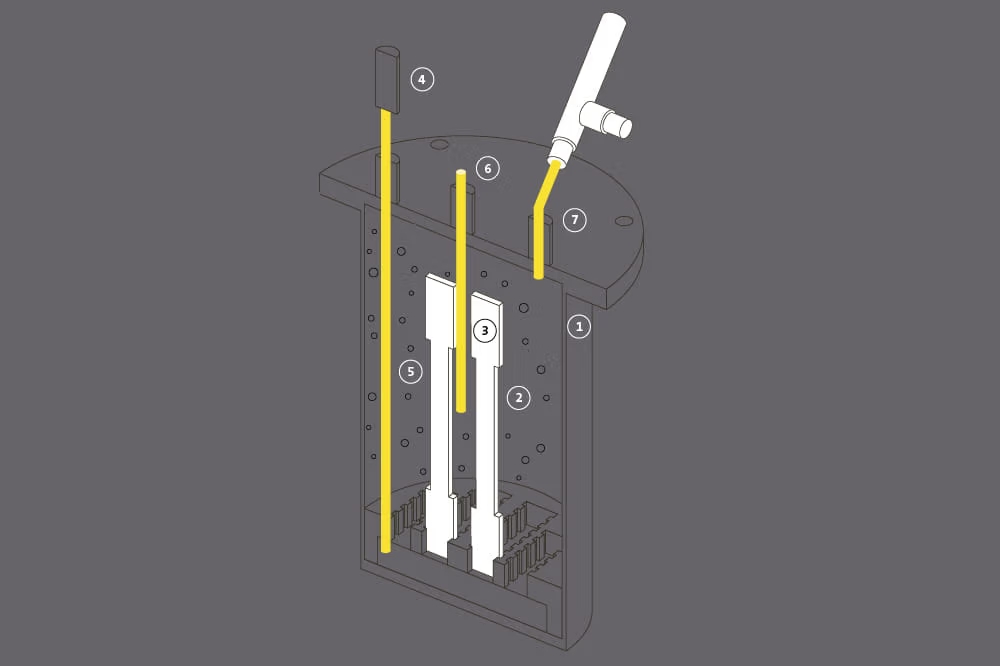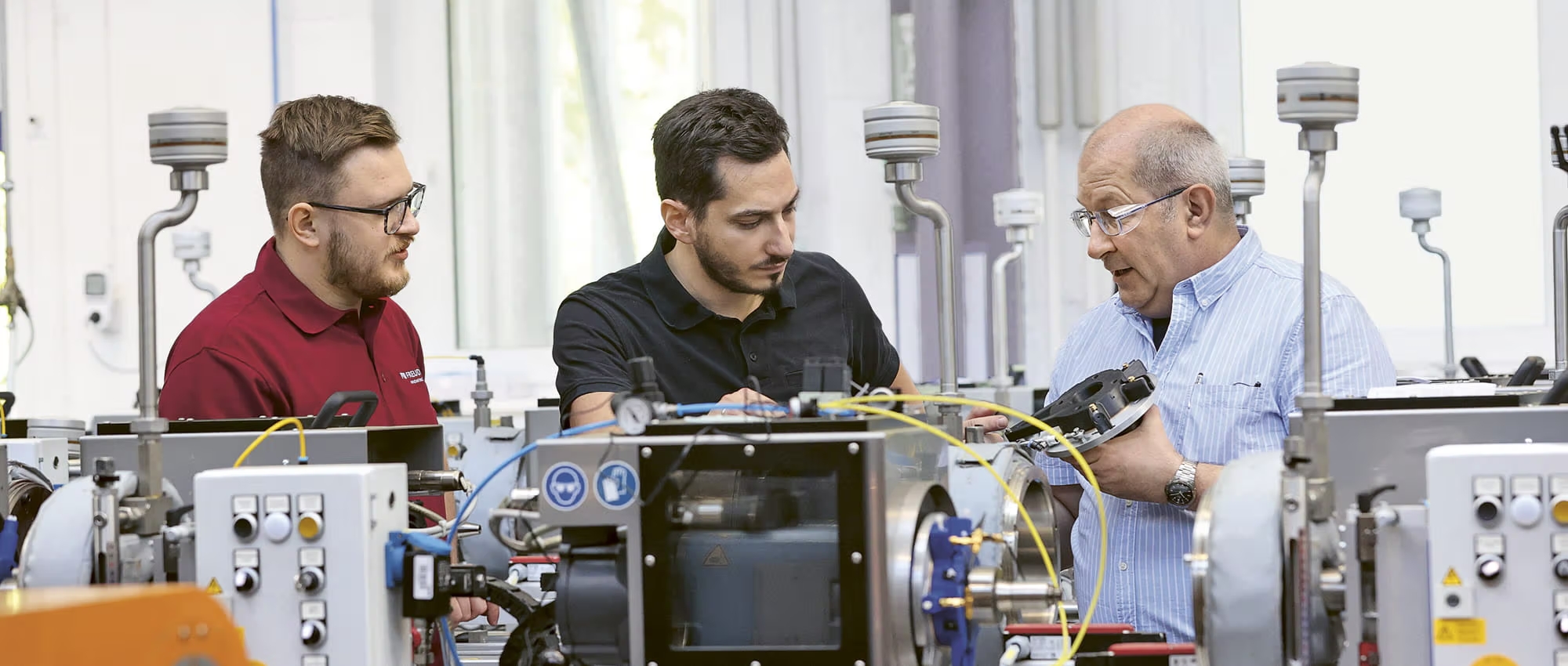Before new seals and materials reach the market, they have to prove themselves in demanding tests. Freudenberg Sealing Technologies has turned to its own high-quality test stands to put them through their paces.
The calamity began when the electric vehicle started to vibrate while being driven. Loud noises from the motor added to the impression that something had gone wrong. But what was causing the sudden problems that a French vehicle manufacturer noted in 2015?
“Electric erosion was to blame,” said Stefan Morgenstern, an advanced development specialist at Freudenberg Sealing Technologies. “After a few years, it had damaged the bearing to such an extent that the vibrations and noises were inevitable.” Due to the buildup of voltage when the electric powertrain was running, countless tiny sparks struck back and forth against the component’s ball bearings and the running surface. At some point, surfaces struck in this way become grooved and are no longer smooth. A motor breakdown was on the horizon.
The French automaker sought advice from Freudenberg Sealing Technologies in Weinheim, Germany. That same year, the sealing company came up with a solution. Its experts applied an electrically conductive nonwoven to the radial shaft seal. The product called eCON guided the harmful electric current past the bearings. To demonstrate the performance of the integrated solution, Morgenstern and his team felt the need to come up with a suitable test stand and find the right testing process in the bargain. This took pioneering work in light of the problems with electric motors at the time. Ultimately, the team added new equipment to an existing test stand and established a valid testing process. eCON’s effectiveness was clearly proven and has been confirmed in practice with great success since then.

Flexible: Test stands are always built according to precise specifications, but they can always be modified.
Simulations of Arctic and Desert Driving
In any case, eCON showed how important it is to have the right expertise to set test specifications and effectively use the company’s high-quality test stands in new and innovative ways. At its headquarters in Weinheim, Freudenberg Sealing Technologies had a test bay with a wide range of test stands. “Using these stands, we try to approximate reality as closely as possible,” said Robert Leins, Test Facility Manager. “To test our Simmerrings, we can simulate driving in the Arctic, the desert and through water.”
With Freudenberg Sealing Technologies’ simulations mimicking a wide variety of conditions in motors, wheel bearings and other applications, it is possible to demonstrate the effectiveness and the efficiency of its innovations. Leins and his staff also perform tests for manufacturers of equipment, vehicles and fluids who set their own specifications for the tests. This reduces the need for tests in real vehicles. “In the end, it is more practical to test in test stands than to wait until a wheel bearing has racked up 300,000 kilometers (186,000 miles),” Leins said. “At our test stands, we work with high rotational speeds, pressures and temperatures, just as they occur in real life. When materials are tested in this way and solutions withstand the stress tests, it can be assumed that they will achieve a specified lifespan in practice,” he said. The tests are significantly shortening the time it takes to attain reliable results. And if adjustments become necessary, they can be made more quickly.

Seals have to perform reliably even under the harshest conditions. That’s why sealing solutions from Freudenberg Sealing Technologies undergo a range of tests that duplicate real-life conditions as much as possible. About 260 test stands are available for this work at the company’s headquarters in Weinheim.
Avoiding Growing Pains in the First Place
All the test stands are programmable, and the measurement data generated (rotational speed, torque, media temperature and internal pressure) is automatically recorded and documented. “In the auto industry, test stands largely help to ensure that new models are not out on the road while they are still suffering growing pains,” Leins said. “People used to be more lenient on this. But now everything is tested and put through the paces as much as possible. If we are now referring to special test stands, we can produce rotational speeds up to 36,000 revolutions per minute,” he proudly continued. “We can check seals from just a few millimeters in diameter up to one meter. We can alternately rotate left and right. We can expose sealing systems to dust, mud, spraying water and even oil. And when necessary, we can also simulate axle play — from -40°C to +150°C.”
Freudenberg Sealing Technologies is working closely with a special machine manufacturer on the construction of its test stands. It produces the devices based on precise specifications. The test stands are modified when new requirements become necessary. In some cases, Freudenberg Sealing Technologies undertakes the changes on its own. “We hardly have a test stand today that is in its original condition. We consider the ability to add software and hardware to our computersupported equipment to be essential,” Leins said. “Our test stands position us superbly as a company. Independent measurement labs rely on comparable test stands. In some cases, we are even pioneers.”

As if in a time-lapse: A new Freudenberg test stand simulates how aggressively the challenging environment in electrolyzers attacks seal materials. In this process, a two liter pressure chamber (1) is filled to 80 percent with caustic potash or sulfuric acid (2) and then heated. Material samples are located inside (3). Pure oxygen (4) is fed into the chamber at a pressure of 35 bar; its gas bubbles (5) flow around the sample. Two sensors monitor the temperature (6) and the speed (7) of the gas bubbles.
Advanced Test Stand for Electrolyzer Materials
One example is the latest test stand in which Freudenberg Sealing Technologies invested a six-figure sum at its Plymouth, Michigan/USA, site during the summer of 2022. It rigorously tests sealing materials that are used in electrolyzers, which enable hydrogen production on a large scale. “With this test stand, we can simulate in a few weeks how our materials will behave over years of continuous use,” said Dr. Alexander Hähnel, a materials specialist at Freudenberg Sealing Technologies.
This advanced test stand can successfully simulate the operating conditions found in different electrolyzers, allowing testing experts to accurately assess how materials are behaving in such aggressive environments. As if in a time-lapse sequence, it measures and visually tracks how materials react to high temperatures in combination with caustic potash or sulfuric acid. During these tests, the stand also simulates how well the materials withstand oxygen being forced into them at very high pressures. The results make additional targeted developments possible. The test stand’s documentation also offers the makers of electrolyzers an advantage: They can validate the reliability of the seals they build into their products.
With test stands like those in Plymouth and Weinheim, Freudenberg Sealing Technologies is differentiating itself among a large group of materials manufacturers. And if a customer ever has a problem, its experts are ready to track down a solution.
This article originally appeared in ESSENTIAL, Freudenberg Sealing Technologies’ corporate magazine that covers trends, industries and new ideas. To read more stories like this, click here.
